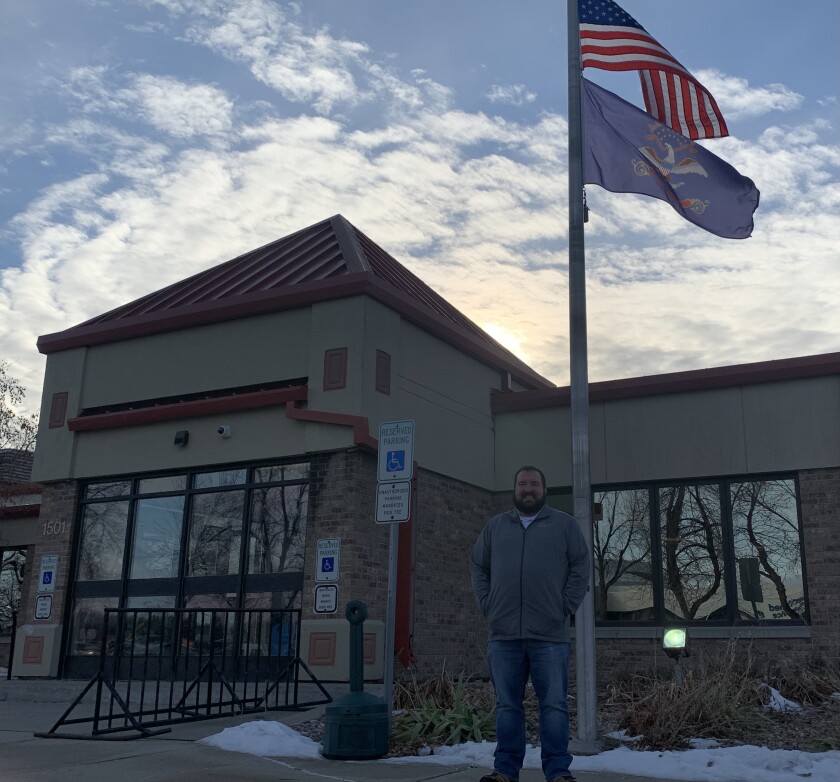GRAND FORKS — An April report by Merchant Maverick listed North Dakota as one of the states most likely to survive a recession in 2022, but how much stock can be put in its results?
North Dakota landed second on the report , only behind Nebraska, due to “its large government reserves in relation to spending,” as well as a low unemployment rate, low income tax rate and the sixth-most affordable housing market in the United States.
While these factors do play into how a state fares during a recession, David Flynn, an economics and finance professor at UND, said the report has one flaw — the report cites data from The Great Recession for much of its data, but as Flynn points out, the COVID-19 pandemic brought on its own recession in 2020.
“My concern with these types of things is always that they are inherently limited by how they're defining ‘resiliency’ how they're defining ‘taking on the recession’ and ‘succeeding through the recession.’ You can’t avoid it. The question becomes, do they have a narrow view of recession or a broad view of recession and what's that really looking at?”

Flynn said to the report’s credit, it does cite what data it bases its rankings on, but North Dakota survived The Great Recession based on factors that may not be relevant the next time the economy tanks.
ADVERTISEMENT
The Great Recession was avoidable, according to the report by the Financial Crisis Inquiry Commission in 2011 , and resulted from a failure to regulate the financial industry, as well as an inability to curb toxic mortgage lending. The COVID-19 pandemic caused the global economy to come to standstill from consumer and supplier standpoints.
“We had some good business practices,” Flynn said. “In the Great Recession, we had low numbers of sub-prime loans being made in the state, and we had the oil industry take off. So we weathered the Great Recession well because of a confluence of events, (and) some were good business practices, and some were good luck.”
In essence, not every recession is created equally.
“If we have another oil crisis hit the globe where prices declined drastically, that could be an outsized problem for states like North Dakota, Oklahoma and Texas, but not a problem in some other states,” Flynn said. “You always have to take some of these things with a with a grain of salt because the nature of the recession will matter too, (such as) the sector it starts in (and) the sector it impacts”
He also purports economic diversity is a big part of a state's — or community’s — sustainability during a recession. Diversity does not mean those areas must have a little bit of everything when it comes to producing GDP or employment, but having a variety of opportunities for growth instead of just being solely concentrated in key sectors can result in more stability.
Flynn’s biggest concern with the report is that its rankings are somewhat weighted by how states fared in the Great Recession, meaning the report is not as forward-looking as it should be. One of the biggest factors Flynn said will impact states in a future recession is not necessarily unemployment rates, but worker availability. Having a large available workforce is helpful to surviving a recession, but what North Dakota lacks in that regard is “slack.”
“We've seen oil attract workers, but we haven't seen much else attracting workers over the last several years,” Flynn said.

Dusty Hillebrand, Grand Forks workforce center manager at North Dakota Job Service, said Grand Forks in particular has more jobs available than people who are unemployed. So, is that a good thing?
ADVERTISEMENT
“It would be great if we had more people that were in the job market so businesses weren’t struggling to find employees,” Hillebrand said.
Hillebrand said North Dakota as a whole offers a good standard of living. Grand Forks specifically has low crime rates and relatively affordable housing, and groups such as the EDC have put work in to make it attractive for job seekers.
“If you look at what we have going on here in Grand Forks and what the city and the park board are doing with different events that are in the area and what the EDC is doing to help to bring high-pay, high-tech businesses to the Grand Forks area… We want to offer those to folks that are looking for a great place to live and great jobs,” Hillebrand said.













